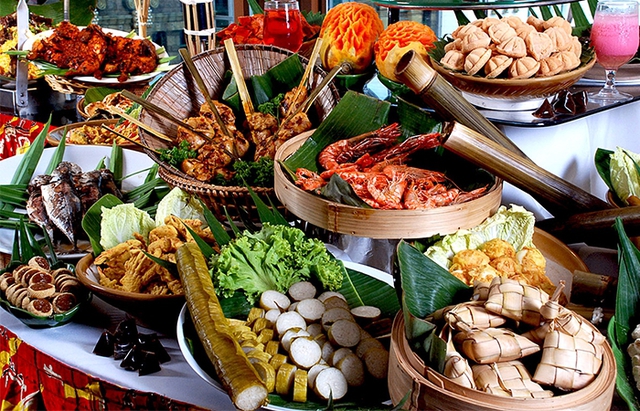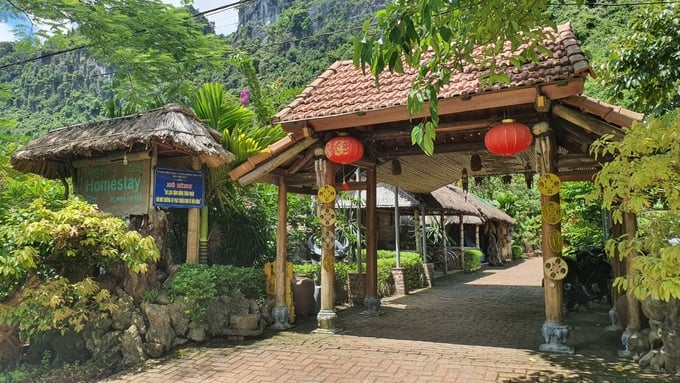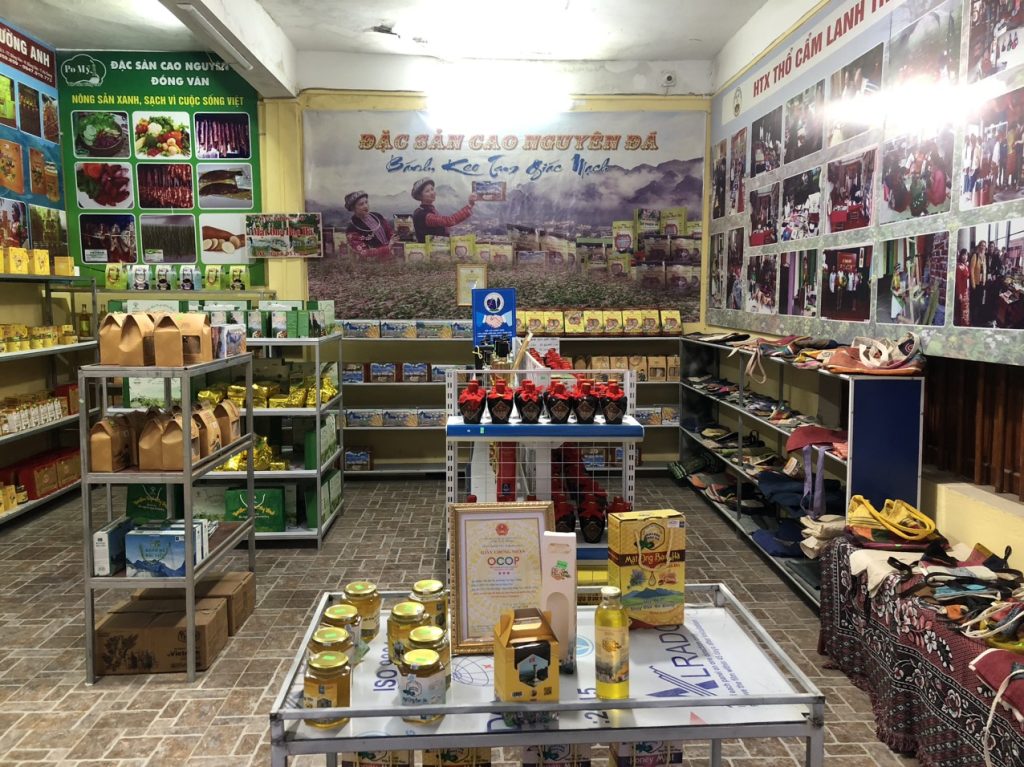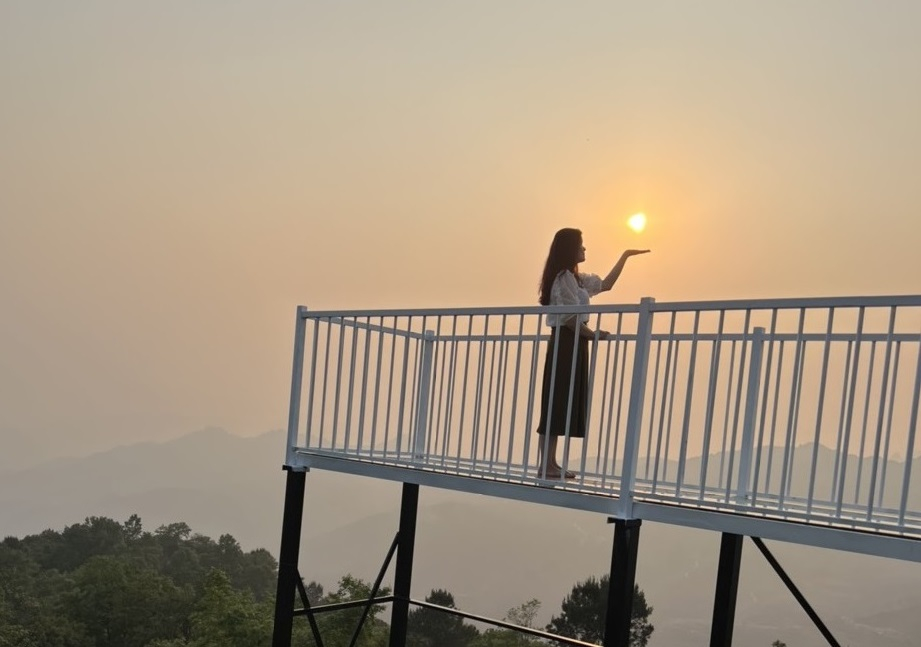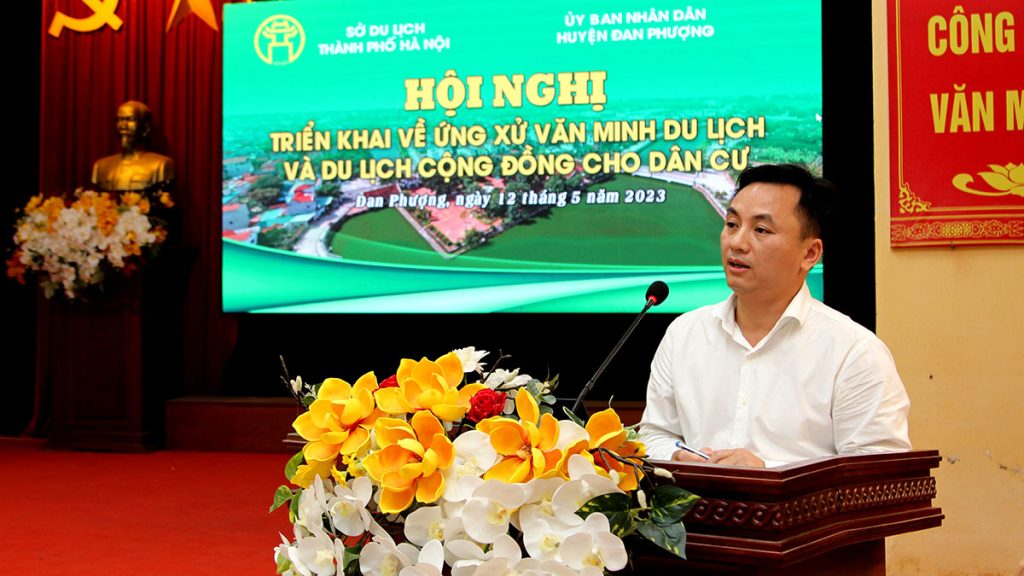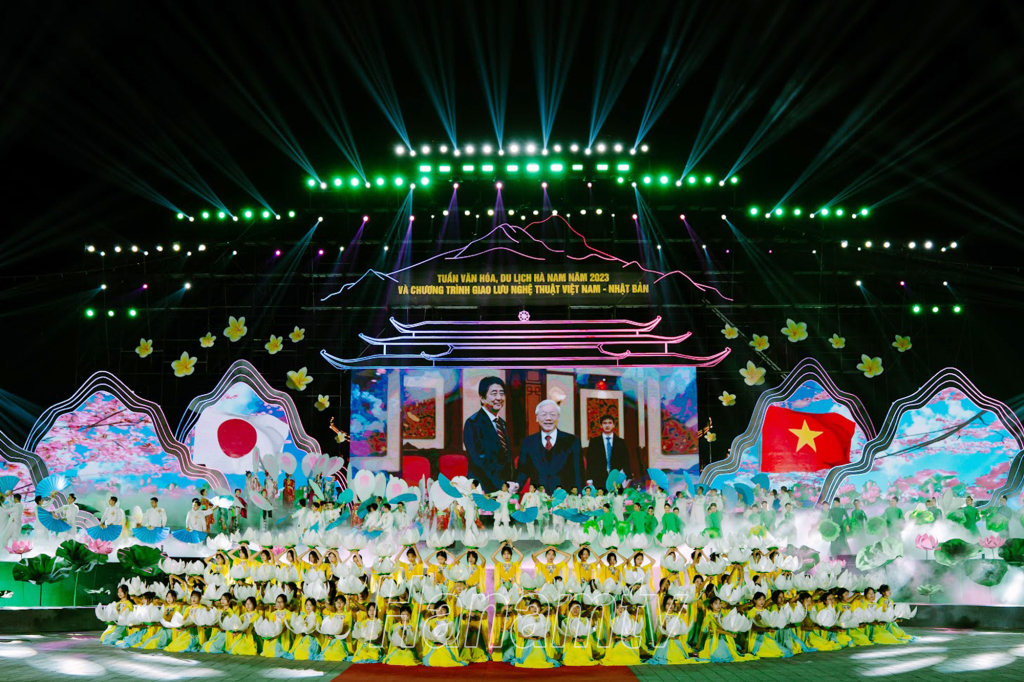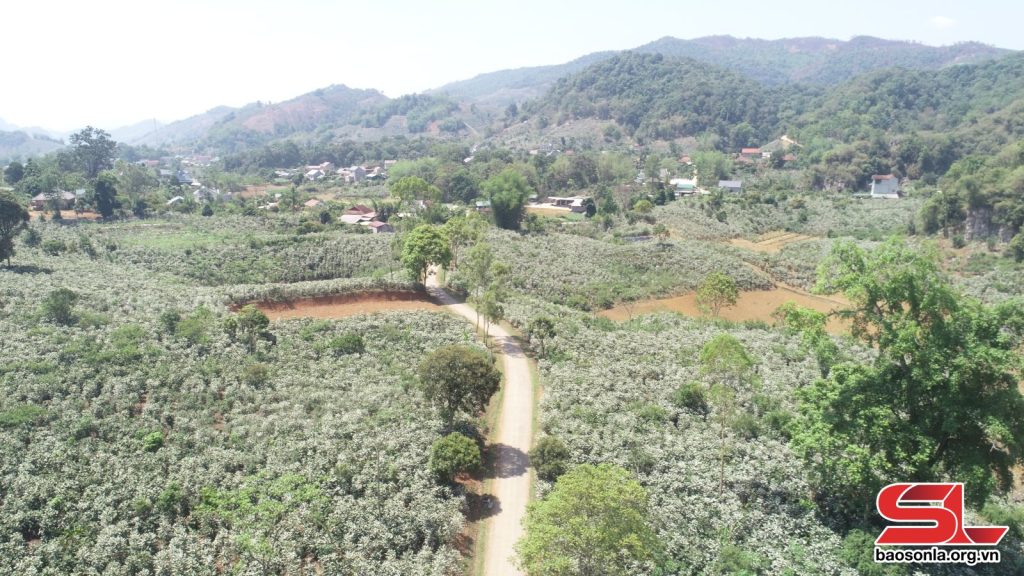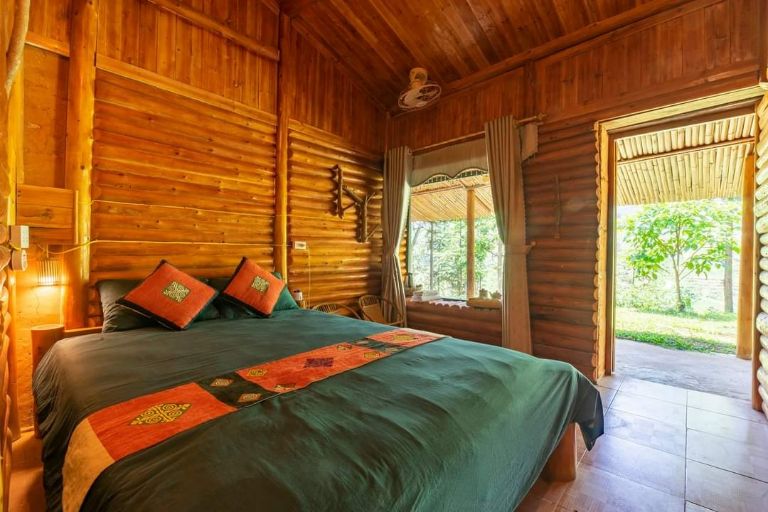Hoa Vang District accounts for nearly three quarters of Da Nang’s land area, boasting many agricultural production zones and breathtaking natural landscapes that are suitable for the development of ecotourism, agricultural tourism, and community tourism.
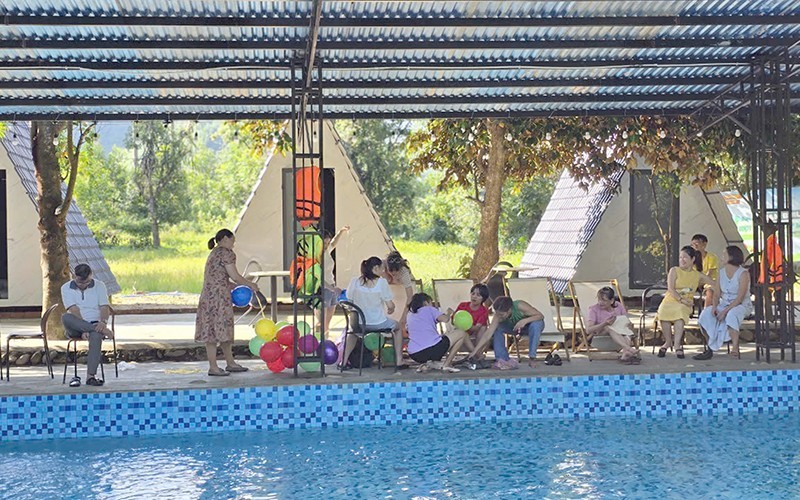 |
Le Thi Sanh was meticulously cutting grass at the Nong Trai Sen Ecotourism Area in Truong Dinh Village, Hoa Lien Commune.
Wiping away the drops of sweat from her face, Sanh said: “This area belongs to Dang Van Tung, a local resident. In the past, it drew a large number of visitors. The other side was his neighbours’ land, which was leased to Tung for visitors to stay overnight. But later the authorities reviewed the regulations and did not allow overnight stays because the land belongs to many households.”
She added: “Initially Tung only ran the business on his land and then hired adjacent plots for tourism. Villagers also benefitted because the rent is higher than sheer agricultural production. Local people had greater income from taking care of the trees and flowers or working at the tourism area. It is regrettable that the area is being suspended until a license is granted.”
One of the successful models of developing tourism along with agriculture, forestry and aquafarming in Hoa Vang District is An Phu Farm in Hoi Phuoc Village, Hoa Phu Commune. The project has been implemented since 2019 on an area of nearly 2 hectares.
After receiving the permit from the authorities, An Phu Farm began to build 15 camps which can accommodate 40 guests. Duong Hien Tu, investor of An Phu Farm, shared that in recent years there has been an increased demand in ecotourism combined with agricultural experiences such as planting trees, harvesting crops, and fishing in hilly areas not too far from the city centre.
Tu’s farm has attracted many visitors from central Da Nang since he began offering camping services. However, overnight stays are still a problem because it is not allowed in camping areas, while many visitors wish to stay and have fun all night because it is not easy and safe for them to get home after finishing, eating, and having fun in the evening.
Sharing the same view, Nguyen Van Diep, owner of Son Phuoc Tourism Area, stated that after the city issued a policy on combining tourism with agriculture, he invested 15 billion VND to improve the soil quality. Next, he applied for a license to build a picnic area with 15 camps that can accommodate nearly 100 visitors.
He said that under the revised land law, people can now use agricultural and forestry land for tourism purposes. To attract visitors to stay overnight, it is necessary to have firmly built structures such as toilets, kitchens, and dining rooms. He expressed his expectations that the government would soon introduce specific guidelines for implementation.
In fact, revenue from using agricultural and forestry land for tourism purposes can be twice or three times higher than that from sheer agriculture. City residents’ demand for ecotourism is growing while Da Nang’s suburban areas hold great potentials. The only problem is the mechanism at the central level to unlock the potential of agricultural land.
Tuan Le Glamping in Hoa Bac Commune has more favourable conditions because among more than 3.4 hectares of land, nearly 1,500 square metres are residential land. Therefore, owner Le Van Tuan had some buildings constructed firmly for tourists to stay safely overnight. As a result, Tuan Le Glamping has drawn a great number of tourists from central Da Nang and neighbouring areas to visit and have fun overnight.
Tuan shared that if other areas are also given permission to build residential units, more and more tourists will come to Hoa Bac. Right at Tuan Le Glamping, if part of the perennial land can be converted to residential land, there will be more well-appointed residential units that meet visitors’ demands, which is a favourable condition to develop ecotourism in this remote and poor part of Da Nang.
Hoa Bac Commune Chairman Thai Van Hoai Nam shared that in the past local residents relied on forests for their livelihoods. But since tourism began to develop, their mindsets have changed. They now understand that once they protect forests, water sources, and fruit orchards, more and more tourists will come and their income from tourism services will also be higher than farming or illegally cutting trees and trapping animals in the forests.
According to Hoa Vang District Chairman Phan Van Ton, the district currently has many agricultural production areas suitable for developing ecotourism and community tourism. As of August 2024, Hoa Vang District received 61 dossiers on piloting the combination of tourism and agricultural production, 15 of which have been approved for implementation while 45 are pending due to legal issues.
The demand of developing tourism on agricultural land in Hoa Vang is huge. Therefore, the district wishes that the city and central government will soon allow overnight stays at existing agricultural tourism zones in order to offer more services for visitors and increase revenues for investors.
Thanh Tung
NDO – en.nhandan.vn

